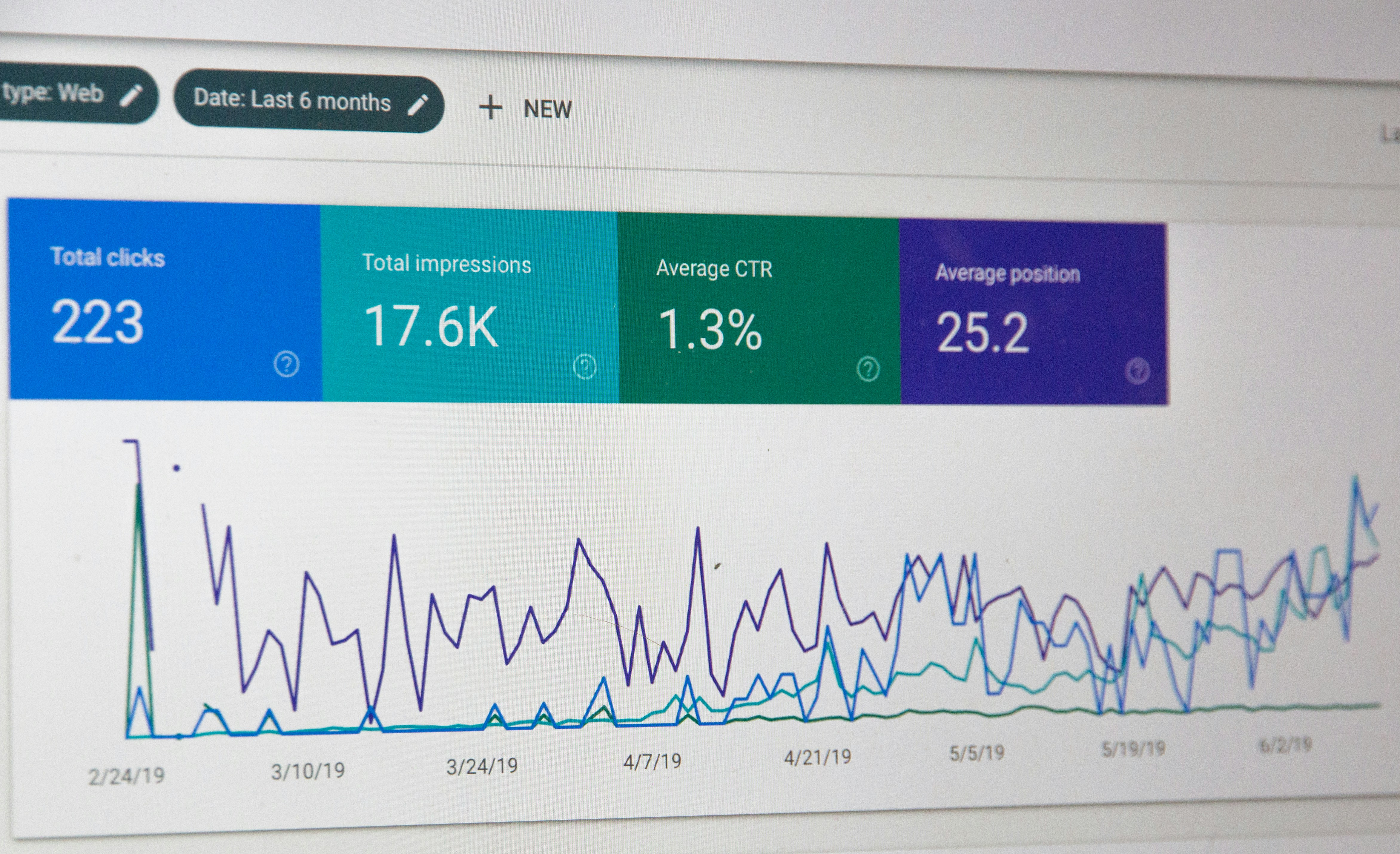If you've ever found yourself wondering if it's possible to make money online through affiliate programs, you're not alone. With the rise of e-commerce and the increasing popularity of online shopping, more and more people are exploring the potential of affiliate marketing to generate income from the comfort of their own homes. In this article, we will explore what affiliate programs are, how they work, and whether or not it is a feasible option for you to earn money online through this avenue. So, if you're curious about the possibilities and eager to explore new ways of making money, keep reading to find out more about the world of affiliate programs.
Yes, you definitely can! Affiliate marketing is a popular and effective way to monetize your online presence and generate passive income. By partnering with companies and promoting their products or services, you can earn a commission for every sale or lead that is generated through your unique affiliate link. But before diving into the world of affiliate marketing, it's important to have a clear understanding of how it works, who the key players are, and what to consider when choosing the right affiliate program for you. Let's explore these topics in more detail.
Understanding Affiliate Marketing
What is affiliate marketing?
Affiliate marketing is a performance-based marketing strategy where affiliates earn a commission for promoting and referring customers to a business. Affiliates can include individuals, bloggers, influencers, or companies who have an online presence. This marketing model allows businesses to expand their customer base through the efforts of these affiliates, while the affiliates themselves earn a passive income based on their referrals.
How does affiliate marketing work?
Affiliate marketing works through a three-step process. First, the affiliate promotes a product or service by sharing their unique affiliate link through various channels. When a user clicks on the link and completes a desired action, such as making a purchase or signing up for a newsletter, the affiliate earns a commission. Finally, the affiliate receives their commission from the merchant or affiliate network.
Who are the key players in affiliate marketing?
The key players in affiliate marketing include the merchant, the affiliate, and the customer. The merchant is the business or company that offers a product or service for sale. The affiliate is the individual or entity that promotes the product or service through their online platform. And the customer is the end user who makes a purchase or takes a desired action as a result of the affiliate's promotion. Affiliate networks also play a role by connecting merchants with affiliates and facilitating the tracking and payment process.
Can You Earn Money with Affiliate Programs?
Monetization through affiliate marketing
Yes, you can earn money through affiliate programs. The amount of money you can earn depends on various factors such as the commission rate, the price and demand for the product or service, and the effectiveness of your promotional efforts. However, it's important to note that affiliate marketing is not a get-rich-quick scheme. It requires time, effort, and strategic planning to build a successful affiliate marketing business.
Examples of successful affiliate marketers
There are numerous examples of successful affiliate marketers who have achieved significant financial success through their affiliate marketing efforts. Some notable examples include Pat Flynn from Smart Passive Income, Michelle Schroeder-Gardner from Making Sense of Cents, and John Chow from John Chow dot Com. These entrepreneurs have built thriving online businesses by leveraging affiliate marketing along with other revenue streams.
Common earning scenarios
Earning potential in affiliate marketing can vary greatly depending on the niche, target audience, and promotional strategies used. Some common earning scenarios include earning a commission for each sale generated through your affiliate link, receiving a fixed fee for each lead generated, or earning recurring commissions for subscription-based products or services. It's important to carefully review the terms and conditions of each affiliate program to understand the specific earning opportunities available.
Finding the Right Affiliate Program
Factors to consider when choosing an affiliate program
When choosing an affiliate program, there are several factors to consider to ensure it aligns with your goals and target audience. First, consider the commission rate and payout structure. Look for programs that offer competitive commission rates and timely payments. Also, evaluate the quality and relevance of the products or services being offered. It's important to promote products that resonate with your audience and align with your brand. Furthermore, examine the affiliate program's reputation and track record. Research the program's history, reviews, and success stories before committing to promote their products.
Top affiliate programs to consider
There are countless affiliate programs available, catering to a wide range of niches and industries. Some top affiliate programs include Amazon Associates, ShareASale, Commission Junction, and ClickBank. These platforms offer a vast selection of products and services to promote, with reliable tracking and payment systems. Additionally, many individual companies have their own in-house affiliate programs, so it's worth exploring if your favorite brands offer affiliate partnerships.
Researching on niche-specific programs
If you have a specific niche or interest, it can be beneficial to research and join niche-specific affiliate programs. These programs often have a more targeted audience and higher conversion rates. For example, if you have a blog or website focused on fitness and healthy living, consider joining affiliate programs for fitness equipment, workout apparel, or healthy food subscriptions. By aligning your promotions with your niche, you can increase the likelihood of generating sales and earning commissions.
Setting Up Your Affiliate Marketing Business
Create a website or blog
To establish a strong online presence for your affiliate marketing business, creating a website or blog is crucial. This digital platform will serve as the hub for your content and affiliate promotions. When creating your website or blog, consider your target audience, niche, and brand identity. Design an appealing and user-friendly interface, and ensure that your website or blog provides valuable content that engages and educates your visitors.
Choose your niche
Choosing a niche is an important step in setting up your affiliate marketing business. A niche is a specific area of interest or expertise that you will focus on when developing your content and promoting affiliate products. By narrowing down your niche, you can effectively target a specific audience and establish yourself as an authority in that area. This can greatly enhance your credibility and increase your chances of earning meaningful commissions.
Register for your chosen affiliate program
Once you have established your website or blog and chosen your niche, it's time to register for your chosen affiliate program. Visit the affiliate program's website and follow their registration process. This usually involves providing basic information about yourself and your online platform. Some programs may have specific requirements, such as minimum traffic or content quality standards, so be sure to review and comply with their guidelines.
Creating Engaging Content for Affiliate Marketing
Understanding Marketing strategies
To effectively promote affiliate products and attract your target audience, it's crucial to understand various marketing strategies. Content marketing, social media marketing, email marketing, and search engine optimization (SEO) are some of the key strategies you can leverage. Each strategy has its own benefits and considerations, so it's important to explore and implement the ones that align with your goals and target audience.
Blogging and SEO
Blogging is an effective way to create engaging content and drive organic traffic to your website or blog. By consistently publishing informative and valuable blog posts related to your niche, you can establish yourself as an authority and attract a loyal audience. Additionally, optimizing your content for search engines through SEO techniques can greatly improve your website's visibility and search rankings, resulting in increased traffic and potential conversions.
Making your content engaging
Engaging content is crucial for capturing and retaining the attention of your audience. Use storytelling techniques, visuals, and actionable advice to make your content compelling and memorable. Incorporate relevant affiliate product recommendations naturally within your content, ensuring they provide value to your audience. Additionally, encourage audience interaction through comments, feedback, and social media engagement, creating a sense of community and trust.
Promoting Affiliate Products Efficiently
Using email marketing
Email marketing is a powerful tool for promoting affiliate products directly to your audience. Build an email list by offering valuable content or exclusive offers to your visitors in exchange for their email addresses. Once you have an email list, send regular newsletters or promotional emails that showcase relevant affiliate products. Be sure to provide enticing offers, compelling subject lines, and visually appealing content to maximize click-through and conversion rates.
Using social media platforms
Social media platforms offer a wide range of opportunities for promoting your affiliate products. Create engaging and shareable content that resonates with your target audience. Share product reviews, tutorials, or testimonials, and incorporate your affiliate links within the posts or in your profile bio. Engage with your followers by responding to comments and messages, and use social media advertising to reach a wider audience and boost your promotional efforts.
Optimizing SEO for increased visits
Search engine optimization (SEO) is crucial for increasing organic traffic to your website or blog. Conduct keyword research to identify the search terms your target audience is using, and strategically incorporate these keywords into your content, meta tags, headings, and URLs. Build high-quality backlinks from reputable websites to improve your website's authority and search engine rankings. By optimizing your website for SEO, you can attract more visitors and increase the visibility of your affiliate promotions.
Maintaining Affiliate Marketing Compliance
Understanding the affiliate marketing rules
When engaging in affiliate marketing, it's important to abide by the rules and regulations set forth by the affiliate program, as well as any applicable laws or regulations. These rules typically include guidelines related to disclosure, prohibited promotional methods, and compliance with ethical standards. Familiarize yourself with these rules and ensure that your promotional efforts and content align with them to maintain a positive and compliant affiliate marketing business.
Keeping your efforts transparent
Transparency is key in affiliate marketing. Disclose your affiliate relationships clearly and prominently to your audience. Inform them that you may earn a commission for any purchases made through your affiliate links. This can be done by including a disclosure statement on your website, blog posts, or social media profiles. By being transparent, you establish trust with your audience and avoid any potential legal issues.
Avoiding potential pitfalls
While affiliate marketing can be a rewarding endeavor, it's important to be cautious and avoid potential pitfalls. Some common pitfalls include promoting low-quality or irrelevant products, using unethical promotional tactics, or engaging in spammy practices. Always prioritize the needs and interests of your audience, and only promote products that you genuinely believe in and have thoroughly researched. Additionally, stay updated with industry trends and best practices to stay ahead of potential risks.
Evaluating Your Affiliate Marketing Success
Tools for tracking your traffic and sales
To evaluate the success of your affiliate marketing efforts, it's essential to utilize tracking tools that measure your website traffic, conversions, and sales. Google Analytics is a popular tool that provides insights into your website's performance, including the number of visitors, their behavior, and the conversions generated. Affiliate networks or individual affiliate programs may also offer tracking tools and dashboards that provide in-depth reports on your promotional activities.
Understanding your marketing analytics
By analyzing your marketing analytics, you can identify trends, understand your audience demographics, and evaluate the effectiveness of your promotional strategies. Examine key metrics such as click-through rates, conversion rates, average order value, and customer lifetime value. This data can help you optimize your content, understand which products are resonating with your audience, and identify areas for improvement.
Strategies for improving performance
Once you have evaluated your affiliate marketing performance, it's important to identify opportunities for improvement and implement strategies to enhance your results. Experiment with different promotional methods, optimize your content for better SEO rankings, or collaborate with other affiliates or influencers to expand your reach. Continuously monitor and analyze your performance, making data-driven decisions to refine your strategies and maximize your earning potential.
Overcoming Challenges in Affiliate Marketing
Identifying common challenges
Like any business venture, affiliate marketing comes with its own set of challenges. Some common challenges include fierce competition, maintaining consistent traffic, building a loyal audience, and keeping up with industry trends and changes. It's important to be aware of these challenges and develop strategies to overcome them.
Strategies for overcoming challenges
To overcome the challenges in affiliate marketing, it's essential to stay up-to-date with industry trends, constantly learn and adapt, and be proactive in finding innovative solutions. Focus on providing value to your audience through quality content and personalized recommendations. Build relationships with your audience and leverage social proof through testimonials and reviews. Additionally, consider diversifying your promotional channels and collaborating with other affiliates or influencers to reach a wider audience.
Learning from the experiences of successful affiliate marketers
One of the best ways to overcome challenges in affiliate marketing is to learn from the experiences of successful affiliate marketers. Follow industry leaders, read their blogs, listen to their podcasts, and attend relevant conferences or webinars. Pay attention to their strategies, mistakes, and successes, and adapt those learnings to your own affiliate marketing business. By continuously learning from those who have already achieved success, you can overcome challenges and navigate the affiliate marketing landscape more effectively.
Expanding Your Affiliate Marketing Business
Diversifying your affiliate products
To expand and scale your affiliate marketing business, consider diversifying the range of products or services you promote. This can help you reach a wider audience and cater to various needs and interests. Research and identify complementary products or services within your niche, and sign up for additional affiliate programs or networks. By offering a diverse range of products, you can increase the potential for earning commissions and provide more value to your audience.
Collaborating with other marketers
Collaborating with other marketers, affiliates, or influencers can be a powerful way to expand your reach and tap into new audiences. Explore partnerships or joint ventures with individuals or businesses who align with your niche, but who offer complementary products or services. By combining your efforts and sharing audiences, you can effectively cross-promote each other's products and leverage each other's expertise, ultimately growing both of your affiliate marketing businesses.
Growing and scaling your business
As your affiliate marketing business grows, it's important to continuously evaluate your strategies and scale your operations. Streamline your processes, invest in tools or software that can automate certain tasks, and consider outsourcing or hiring team members to support your business's growth. Continuously optimize your content and promotional efforts, based on data and feedback. With a strategic and scalable approach, you can take your affiliate marketing business to the next level and achieve even greater success.
In conclusion, affiliate marketing offers a tremendous opportunity to earn money online through promoting valuable products or services. By understanding the fundamentals of affiliate marketing, choosing the right affiliate program, creating engaging content, and effectively promoting products, you can build a successful and profitable affiliate marketing business. While challenges and pitfalls may arise, with the right strategies and a continuous learning mindset, you can overcome obstacles and expand your affiliate marketing business to new heights. So dive in, embrace the possibilities, and start earning money through affiliate programs today!



